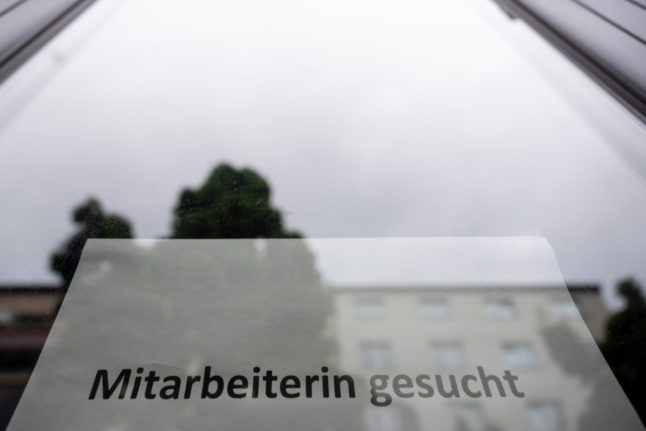The report showed that, despite the relatively slow economic recovery in 2022, employers were unable to fill around 630,000 job vacancies in their industries.
According to the report’s authors at the IW’s Centre for Securing Skilled Workers (Kofa), there was a strong positive correlation between the level of skill required for a job and the difficulty of finding someone.
In particular, people with degrees in IT, electrical engineering and construction planning and supervisions were particularly sought-after, with employers battling a shortage of skilled workers in nine out of ten of these positions.
However, tech, construction and engineering were far from the only industries facing this issue: health, social services, teaching and education were also hit hard by Germany’s skilled worker shortage in 2022.
There are also ever widening skills gaps in sectors that were previously less affected by Germany’s labour shortages. In the fields of commercial services, trade, distribution, hotel and tourism, the number of unfilled vacancies almost tripled last year.
However, the report’s authors point out that sectors were also hit by a rapid following the end of the Covid pandemic, which could also explain why industries like travel conducted a major hiring offensive last year.
Speaking on The Local’s Germany in Focus podcast, Jan Dannenbring, a specialist in labour law at the German Confederation for Skilled Crafts, said the worker shortage was hugely affecting the trades sector.
“We are very much affected by the shortage of skilled workers because the crafts and trades are very staff intensive. The crafts which we perform must be performed by skilled workers; they can hardly be automised or rationalised like an industry. So if you need to paint a house you still need a skilled worker to do that.
“It’s very important for us to have enough skilled workers and the demographic development in Germany has also affected us – like many other parts of the German economy. So at the moment we always say we have 250,000 vacancies in the crafts sector – so that shows the dimension and the shortage that we have.”
READ ALSO: Will immigration reform be enough to combat Germany’s worker shortage?
‘Immigration needed’
IW Cologne believes that Germany won’t be able to solve it’s skilled worker shortage without a significant uptick in immigration.
In March, a record 45.6 million people were employed nationwide – but the increase in employment figures was almost exclusively due to migrants, and particularly non-EU migrants, entering the German workforce.
“Even if we raise all domestic potential, this will not be possible without further immigration, also for demographic reasons,” the head of the Federal Employment Agency, Andrea Nahles, explained. “We need immigration of both labour and skilled workers.”
Nahles’ view is also shared by the current government, who are hoping to encourage a new influx of skilled workers into the country.
In a bill released earlier this year, the Interior Ministry sets out plans for looser immigration rules for skilled workers, more attractive conditions for students and Blue Card holders and a new points-based system for potential jobseekers.
This could come into force by summer.
READ ALSO: Chancenkarte: How many points could you get on Germany’s planned skilled worker visa?
Lack of apprenticeships
Another issue with finding skilled workers is the fact that Germany has seen a major drop-off in the number of young people opting to do an apprenticeship or other vocational training.
According to figures released by the Federal Statistics Office earlier this week, there are currently around 1.25 million apprentices undertaking training in Germany.
The number of people entering training courses has increased slightly following the pandemic, but is still a good eight percent down compared to pre-pandemic levels.
Experts believe this could be partly to do with the lack of training and networking opportunities during Covid. This likely compounded the lack of interest in apprenticeships that Germany has been struggling with for some time.



 Please whitelist us to continue reading.
Please whitelist us to continue reading.
Member comments